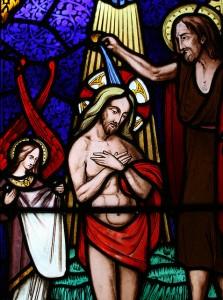I’d like to tell you a story, but I would like to start near the end of the story because really, it’s closest to the beginning.
It was an oddly warm morning this past October and like almost all mornings, I took my dog Aera for a walk. I decided to go to the outdoor track behind the YMCA because I needed a change of scenery from our usual places. One of the best things about having a dog is the necessity of a silent walk—perfect for praying. And that particular morning, my heart was heavy with a decision that I’d made. I was praying that God would give me one last confirmation—a Biblical fleece, I guess you could call it—to show me that I was indeed, following His will. So as I prayed and walked, we passed a lady who was running and she smiled and waved to us. And because this track is a large loop, we passed her several more times. At one point, she stopped running to talk with us. We made small talk about the weather, dogs, and then she asked me a question I was not expecting.
“I know this is going to sound strange,” she said, sounding a bit hesitant. “But do you believe in God?”
“I do,” I replied.
She looked relieved. “You may not believe this, but as I kept passing you, I received a word from the Lord.”
Now I know very well that the phrase “word from the Lord” is a Pentecostal phrase that means, God spoke to me about you, so I was very interested to see where this was going.
“Oh?” I asked, trying to show her that this was indeed welcome information.
“The word I got was ‘courage,’” she continued on without much of a pause. “You see, I think it has something to do with a decision you are making and that you should have the courage to go through with it and not be afraid. This is what you’re supposed to do.”
For a person skeptical of the more mystical side of Christianity, I’ve had quite a few things like this happen throughout my life, so I couldn’t help but smile. “You know, you’ll never believe this,” I responded. “But I was just praying for confirmation for a decision I’m making—that it’s the right one and that God would give me a sign.”
She beamed at that point, “Take this as confirmation. I also feel this has something to do with those close to you—your family? Maybe telling them something they don’t want to hear.”
“Yes,” I said, shaking her hand. “Thank you so much for having the courage to tell me this. It really is what I needed to hear. Your words are an answer to prayer.”
She stood for a few moments, seeming hopeful that I would explain what all of this was about, but I didn’t. I didn’t want to shake her faith.
We kindly parted ways and I shook my head, trying to contain my laughter at God’s sense of humor. You see, what had just taken place was this: a Pentecostal had just told a Presbyterian to become Catholic and to have courage to tell her Southern Baptist dad about her decision. See the humor now?
The following is my thought-process throughout this 5-year journey, it is in no way a complete look into my thoughts, but it is enough. That being said, here is my journey towards Catholicism. I’ll start with the boring stuff I had to come to grips with first about the Catholic Church. If you’re not interested, then feel free to skip to the last paragraph.
Problem #1: Authority
Part 1: I have always had a problem with trusting authority because throughout my life, I’ve had a front-row seat to religious leaders and others in authority abusing their powers (whether through sexual abuse, misleading “truths” to push a personal agenda or to gain notoriety, etc…). Many people my age have left the church because the great amount of hypocrisy they’ve seen. I have not left because I know that a church is a place full of sinners who need God (and the only difference between people in a church and outside of a church is that church-goers admit that they need help to be more like God). For me, God has always been much better and higher than His sin-tainted church. But we try and that’s the point.
What about all of those children sexually-abused by Catholic priests, you are asking? How can you ignore that? I don’t. Here’s the thing, the Catholic church is huge. There are an estimated 1.2 billion Catholics in the world currently. In 2010, there were an estimated 800 million Protestants (many different denominations). I grew up Evangelical and knew that the same awful stuff was happening in most of the churches I’ve attended, the difference being, the churches are smaller and can cover it up more easily. The Catholic church is huge, and thus, much easier to expose. I’m glad that the sins of the Catholic church were exposed because hopefully it can heal and change.
Part 2: Accepting Apostolic Succession. This was not a hard one for me. Catholic theology teaches that when Jesus told Peter “Upon you I will build my church,” it was meant literally. Apostolic succession is through the laying on of hands from one Apostle to another. The Apostles were the first bishops of the church.
Part 3: The all-male Magisterium (bishops of the church who have ruled on interpretation of questionable scriptures throughout history). I do not love that women are excluded as deacons and priests, especially since Junia was named in the Bible as an Apostle (bishop) and is recognized as such in Catholic church history as such, and Priscilla and Phoebe, recognized as a deacons. Thus, historically and Biblically, women should still be eligible for includsion in church authority but they currently are not. That being said, the exclusion of females in governing leadership is nothing new to me. Presbyterians, for example have a Presbytery and only men are considered for pastor, elder or diaconate roles. I tend to give a bit more leeway to Protestants because they think they are acting Biblically. For example, Junia is argued by John Piper in his work in helping to translate for the New English Standard Version to really be Junias (even though there is less-than-nothing to back up that claim besides his own distinctly patriarchal p.o.v.). Protestants shrug at the inclusion of Priscilla as a deacon because they say that she was paired as a “helper” to her husband Aquilla who was the real deacon and was not really referred to as a deacon. The many verses in Timothy about women being silent in church, etc…is always taken out of the patriarchal cultural context at the time too, but whatever. I could go Episcopal or Anglican, but those tend to be pretty liberal leaning or non-existent in our area.
So why am I becoming Catholic despite this? Because progress is being made and the church is open to it. For the last 50 years, many strong nuns and leading female (and male) Catholic writers and sympathetic priests have raised this issue. Every few years, the current Pope brings it up as something that must be changed. Summits are held, voices are heard. Change is slow, but I am happy to lend my voice to this cause.
Part 4: The Pope, the Magisterium, and our ultimate need for consistent authority. Whether or not Protestants like to admit it, we all have our own “Popes” or “Magisterium.” Whether we ourselves are the final authority on what we believe or whether it is a favorite pastor or a more celebrity-type leader (like the Graham’s, Dr. Dobson, Bill Gothard, John Piper), we all listen to someone as the final authority. Becoming Catholic, I am choosing an authority with a long history, both good and bad, that has been consistent in its teachings throughout the centuries.
Problem #2: The Perpetual Virginity of Mary
I’ve read the Protoevangelium of James (aka the Gospel of James). I’m not gonna lie, it’s pretty weird and I have a tougher time with this one. It’s an account of Mary’s upbringing, Christ’s birth, and testimony to Mary’s perpetual virginity. But what about the mention of Jesus’ brothers in Scripture? The church teaches that they were most likely the children of Joseph from a previous marriage or cousins. But having accepted the church’s authority in general, this is one I can live with. And because the Catholic church dates back to Jesus’ Disciples and what they taught, I’m going to believe the people who knew Mary personally. So even if you are a Protestant and are thinking, “for shame,” just remember that the original Church Reformer, Martin Luther, believed in Mary’s perpetual virginity too.
So I’ve told you what I had to really work through, but what simultaneously drew me?
A Consistent Theology of Life, Love and Truth in Action
I was 21 when I picked up a copy of “Death of Innocents” by Sister Helen Prejean from the library. I knew absolutely nothing about the book, I just liked the title when I came across it on the shelf. It was a book about those wrongfully convicted on death row and the idea that the death penalty is always morally wrong (innocent or not). I wrestled with the concept at the time, but now I see that it comes from a theology that is all about respecting the entirety of life. I love that the Catholic Church is pro-life all the way through life and in every aspect. Pro-life to Catholics means much more than just protecting the unborn. It also means caring for and loving the refugee, the prisoner, the oppressed, the mentally ill, the homeless, the elderly, the poor, your enemy; and all of these are equally as important. It means that Catholics were the main overlapping group who attended both the women’s march, the march for life, and refugee rallies across the US. It means having a theology that says others who’ve never heard of Christ but who believe in God in the way that they are able, will likely be alongside Christians in Heaven. It’s a theology that embraces the idea that it is our job to be good stewards of the earth that we live on and we are to care for all of its inhabitants (plant, animal, human). It is a theology that says, yes, God created the earth, but we don’t have to deny science to still believe that. It is a beautiful thing and one, that without putting words to it, I have always believed and tried to live out.
Complexity and Suffering
The churches I grew up in were somewhat fundamentalist, but Advanced Training Institute (ATI) was legalistic to the extreme. They taught us that there were always clear, black-and-white, Biblical answers to every problem that could arise in life. Special rules were formed for that reason: you should not dance, because dancing could lead to sin, for example. Remember King David dancing before the Ark and how that turned out? That was the ATI example of why one should never dance. The philosophy was, it’s better to avoid things that could lead to sin, rather than come near temptation—a sort of bubble wrap theology. I believe very firmly, and always have, that God did not call his people to take the simple path. He did not create for us a simplistic black-and-white, all-or-nothing, comfortable world with easy Biblical answers that we can close our eyes and point to and say, “problem solved!” It would be convenient if the world worked that way, but it doesn’t and can’t. (I’m also not saying that we should purposefully go out of our way to put ourselves in losing situations either).
Although the Catholic church has the same downfalls as any other religion/denomination to ere on either side, its core theology is embracing of that fine line, that delicate balancing act of being in the world fully, but not of the world. It is subtle, nuanced, difficult and complex, and never quick nor easy to explain. Much of what Protestants (including myself a few years ago) say the Catholic church believes is an inaccurate soundbite of the actual belief that misses all of the important complexity. “Catholics believe that you can work for your salvation” is one, for example. In reality, Catholics believe that salvation through Christ’s redemption is the only way, but they take the verse in James, “Faith without works is dead,” very seriously.
Within a portion of that embracing of the complexity, it also means embracing ideas that could lead to suffering. The Catholic church teaches that suffering is a good thing and a normal part of the Christian’s life, and although suffering for suffering’s sake is never right, they encourage believers to not shy away from it, and in some respects, to expect it. In a very real way, if one is truly pro-life and acting on that by visiting the sick, the prisoner, or giving aid to refugees, you might be placed in dangerous situations. You may become ill, you may die, doing what you are called to do and this is what the church is much quicker to embrace than many Protestants. There are two movies that I think really embrace the complexity of trying to grapple with difficult issues of faith, suffering, and what part God has called us to play: The Mission, and Silence. I would encourage you to watch them if you haven’t yet.
The main thing that I would like you as the reader to know is that I’ve put much thought and prayer into all of this as I hope was clear. If you know me well, you know that I’m not just following my husband (as some well-meaning people have assumed). For a handful of people that are very dear to me, I have not told you before now because we have not been face-to-face since I’ve made my decision, and how do you awkwardly work in “oh and by the way, I’m being confirmed in the Catholic Church” into the end of an e-mail, text, or a two second conversation? I know for many people, this might be controversial and that is okay. Note that I did not site scriptures or texts, but they are easily Google-able, so if you want to discuss something, feel free to look it up first and we’ll talk.
One last thing. Please know that I did not make my decisions based upon a dislike of Protestantism, but a love for Catholicism and foremost, because God has called me here.
If you would like to read about my thoughts when Ethan became Catholic (Part 1), here’s the link.


